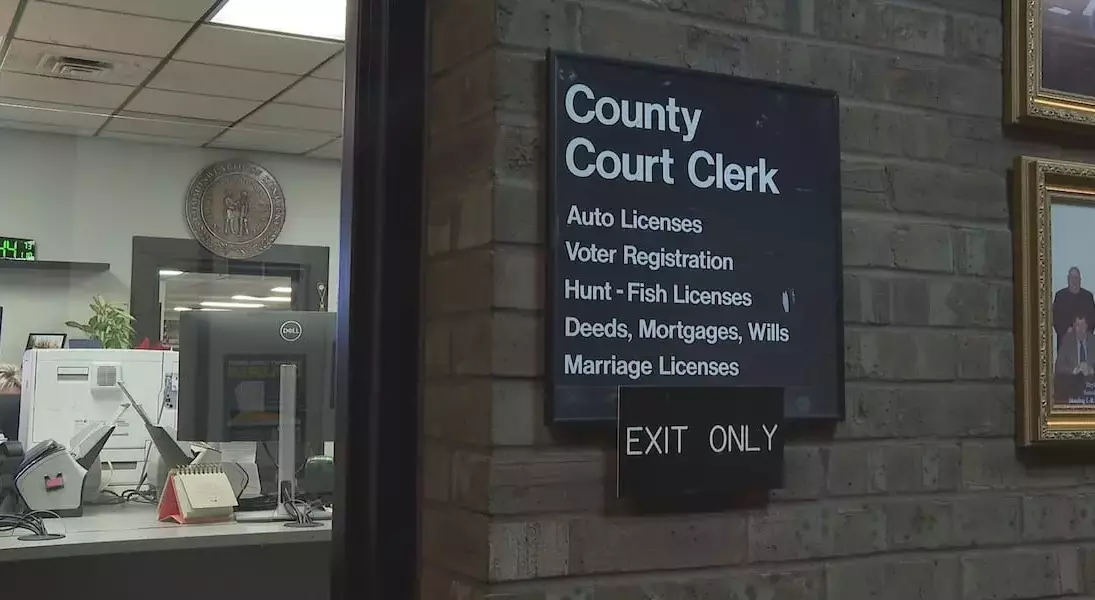Empowering Drivers with Communication Barriers: Kentucky's Groundbreaking Vehicle Registration Initiative
In a significant step towards enhancing road safety and inclusivity, the state of Kentucky has introduced a pioneering initiative that allows drivers with communication barriers to request a special code for their vehicle registration. This innovative approach aims to better prepare law enforcement officers during traffic stops, ensuring a more seamless and understanding interaction for all involved.Bridging the Gap: Kentucky's Innovative Approach to Inclusive Road Safety
Empowering Drivers with Communication Barriers
The new initiative in Kentucky empowers drivers with communication barriers, such as being deaf, hard of hearing, or having a disability, to proactively request a special code to be added to their vehicle registration. This code serves as a vital tool, alerting law enforcement officers to the potential need for alternative communication methods during a traffic stop. By providing this information upfront, the initiative aims to create a more understanding and accommodating environment for both the driver and the officer, fostering a positive and productive interaction.The driving force behind this groundbreaking program was Virginia Moore, Governor Andy Beshear's former interpreter. Moore recognized the challenges faced by individuals with communication barriers during routine traffic stops and approached the Department of Vehicle Regulation Commissioner, Matthew Cole, with the idea. After years of dedicated efforts, the initiative has finally come to fruition, marking a significant milestone in enhancing road safety and inclusivity.Preparing Law Enforcement for Effective Communication
The implementation of this initiative has the potential to revolutionize the way law enforcement officers approach traffic stops involving individuals with communication barriers. By having the special code displayed on the vehicle registration, officers can be mentally prepared to adapt their communication strategies and ensure a more seamless and understanding interaction.Richmond Police Chief Rodney Richardson emphasized the importance of this pre-warning, stating, "This allows them to be prepared mentally when they walk up to the car, to say this may be a different interaction." Officers can now leverage their existing communication tools, such as specialized cards, to bridge the gap and facilitate effective dialogue with the driver.A Collaborative Effort for Positive Change
The success of this initiative is a testament to the collaborative efforts of various stakeholders, including the Department of Vehicle Regulation, law enforcement agencies, and the deaf, hard of hearing, and disability communities. By working together, they have created a solution that not only enhances road safety but also promotes inclusivity and understanding.Chief Richardson expressed his enthusiasm for the program, stating, "I don't know if there's any peace officer here in the state of Kentucky who will complain about being pre-warned that there might be a communication issue with the driver and occupant of the vehicle." This sentiment underscores the widespread support and recognition of the initiative's positive impact.Expanding the Reach: Potential for Nationwide Adoption
The groundbreaking nature of Kentucky's vehicle registration initiative has the potential to inspire similar programs across the United States. As more states recognize the importance of addressing the needs of drivers with communication barriers, the adoption of such initiatives could lead to a nationwide transformation in road safety and inclusivity.The successful implementation in Kentucky serves as a shining example of how innovative solutions can be developed and implemented to create a more inclusive and understanding environment for all road users. As the initiative continues to gain traction, it is likely to inspire other states to follow suit, ultimately leading to a more equitable and accessible transportation system for individuals with communication barriers.You May Like


